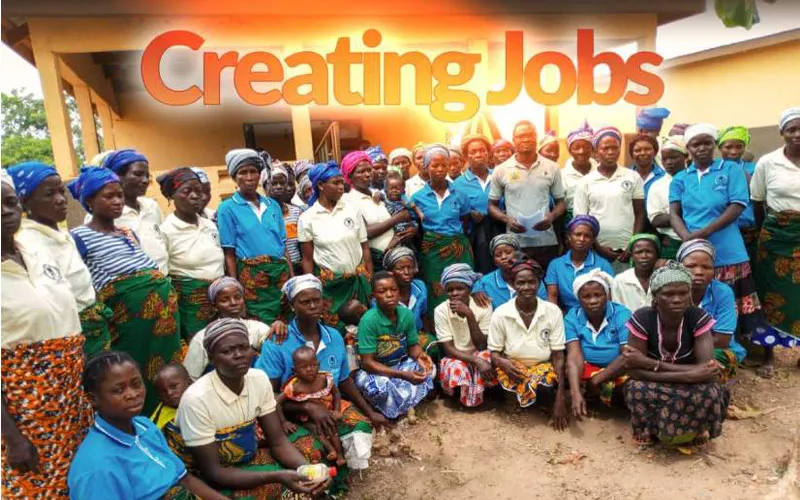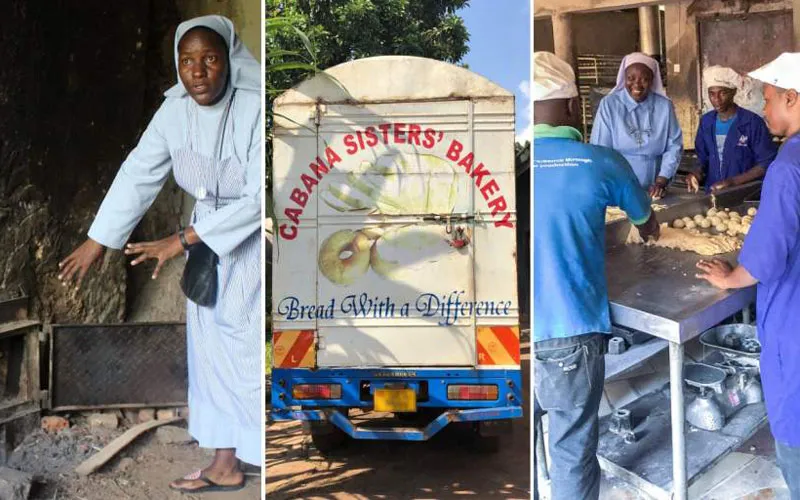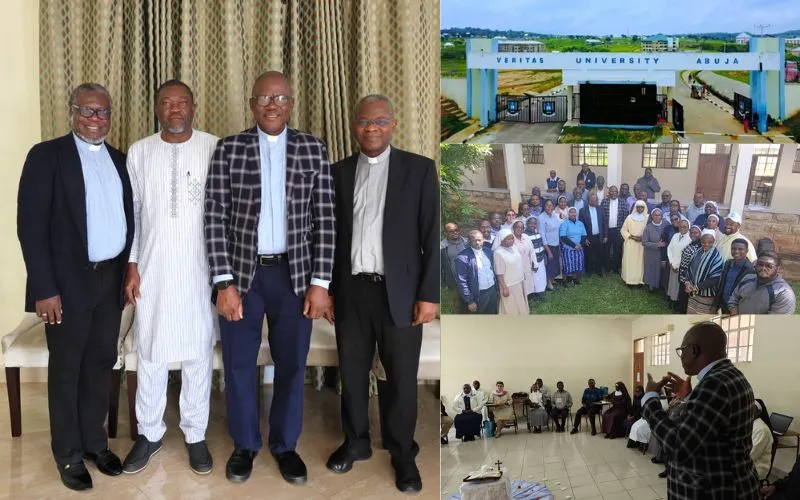“Not only did these projects provide immediate construction jobs, but once completed, the projects have continued to provide meaningful employment to dozens of people across Tanzania,” officials of the 22-year-old Catholic entity say.
In the West African nation of Nigeria, Sr. Justina Ijeoma Elom established St. Helen’s Sewing Centre after completing her SLDI program in 2009 with an aim to “specifically employ the poor.”
“With the budgeting skills I acquired in the SLDI program, I was able to monitor and use our resources very judiciously,” Sr. Elom, a member of the Sisters of Jesus the Good Shepherd (SJGS), has been quoted as saying in the report.
She adds that she has gained other skills such as leadership, facilitation, team building, and personality type and need assessment, which have enhanced her new apostolate.
Sr. Elom has used profits from St. Helen’s Sewing Centre to purchase additional equipment and establish personal savings accounts for her eight employees to help them plan for their future.
(Story continues below)
“Personal successes of employees of the center range from paying off medical debts, to completing home improvements and re enrolling their children in school,” ASEC’s officials recount in the report.
In Ghana, Sr. Stephany Ayomah, a 2009 SLDI beneficiary “is improving nutrition, reducing poverty and creating jobs in her local community through multiple human development projects focused on economic empowerment, gender equality and healthcare,” the leadership of ASEC says.
Sr. Ayomah, a member of the Sisters of Mary Immaculate (SMI) carries out her work in the rural area of Ordorme in the Nanumba North district of Ghana that is “overlooked by government assistance and non-governmental organizations (NGOs).”
“Poverty rates are high and the diet is poor in Ordorme, but Sr. Stephany has committed to improving the lives of her neighbors through the Ordorme Rural Women’s Empowerment Project,” ASEC’s officials say in the February 23 report.
They add, “The project began with meetings under a mango tree and has since grown to a 200-capacity meeting hall funded through a grant secured by Sr. Stephany. Through the group, local women can learn a variety of income-generating skills like soap-making and farming.”
The report further indicates that Sr. Ayomah acquired a grant to construct a building and purchase an oven for Ordome Bakery, which “not only serves as a source of income for her congregation, but also provides jobs for the youth, who use their earnings to further their education.”
“Now, Sr. Stephany has plans for a nutritional unit at the clinic which will serve severely malnourished mothers and children and also create more jobs in her community,” officials of the Pennsylvania-based education initiative further say.
“ASEC program participants have applied their education and skills to creating and sustaining jobs. SLDI and HESA alumni projects have created thousands of jobs in under-served rural African communities,” the leadership of the Catholic entity says and invites the people of God to support the education of Catholic Sisters in Africa.
Established on 8 December 1999 by four Catholic universities in the U.S. and their respective Religious Orders, ASEC’s mission is to facilitate access to education for women Religious in Africa, leading to enhancement and expansion of the education, health, economic, social, environmental and spiritual services they provide.
In the last 22 years, ASEC has facilitated the education of at least 5,300 Sisters spread across 10 countries in sub-Saharan Africa.









